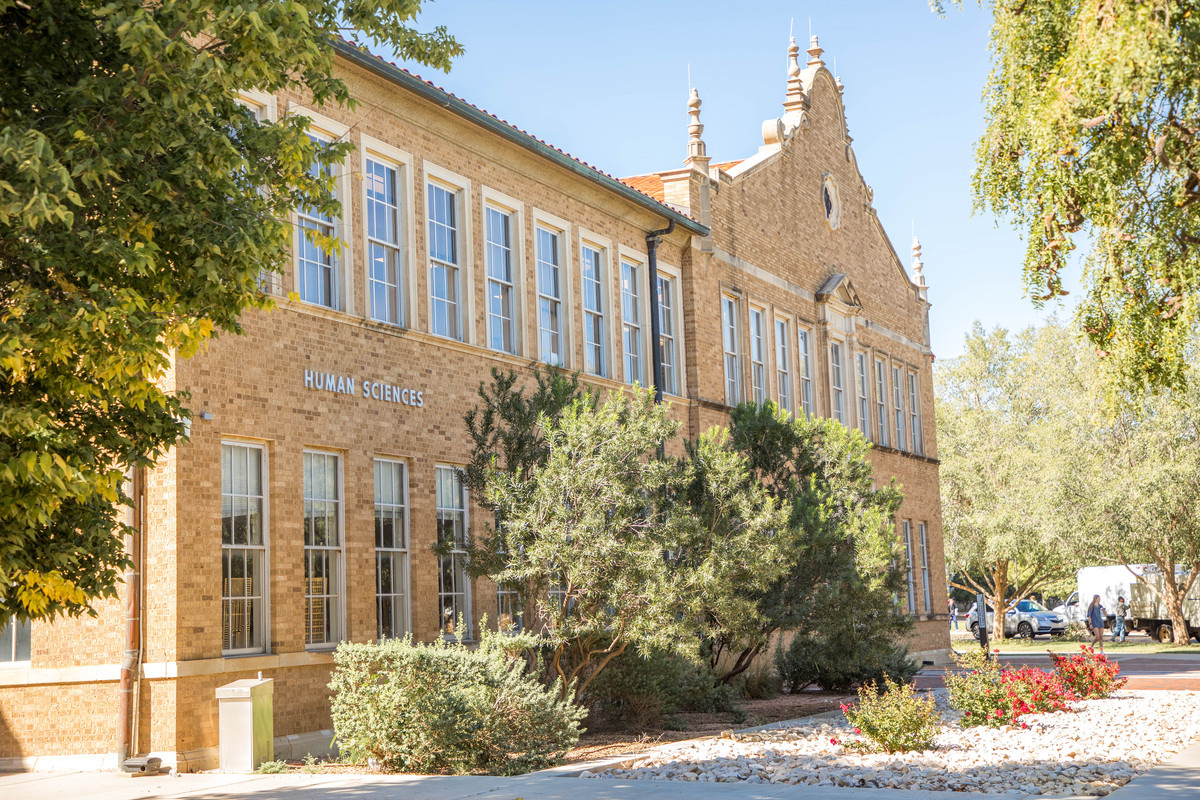
The College of Human Sciences, originally named the School of Home Economics, kicks off its centennial year with a focus on improving and enhancing human health and wellness
February 10, 2023, marks the celebration of 100 years for Texas Tech University. As one of the founding colleges, the College of Human Sciences joins in this celebration as it honors its beginning as the School of Home Economics.
The original Home Economics building was one of the first eight buildings on campus and housed a food laboratory, home health care laboratory, chemistry and nutrition laboratory, and interior design laboratory. The original structure is still a part of the college today. Once classes began in the Fall of 1925, the Home Economics building became home to 79 students by the end of the first year.
In the late 20s, Home Economics students had a choice of courses covering general home economics, teacher training in home economics, food and nutrition, and clothing and textiles. By 1929, The School of Home Economics had four departments: Applied Art, Clothing and Textiles, Foods and Nutrition, and Home Economics Education, with the addition of Child Care and Family Relationships in 1933. Curriculum and educational opportunities for students continued to evolve into the 1930s-1940s.
The School of Home Economics expanded its facilities to include hands-on learning for students. In 1928 the Home Management House, or Practice House, was constructed to provide a real house environment for students to learn homemaking skills. The Home Management House was also used as a nursery school lab in the summer sessions for students taking child care and family relations courses.
Because of growing programs and overcrowded classrooms, the college added two large wings on each end of the building in 1951. On September 1, 1969, Texas Technological College became Texas Tech University and the School of Home Economics became the College of Home Economics.
In the late 1970s, the Marriage and Family Therapy program was founded. The Commission of Accreditation later accredited the Marriage and Family Therapy Education program in 1981. This program eventually implemented centers that serve Lubbock community members. One initiative includes the Family Therapy Clinic, where affordable and professional therapeutic services are available to individuals, couples, and families in West Texas.
Elizabeth (Bess) G. Haley became the College of Home Economics dean in 1981. The college experienced historical growth in the academic departments and programs during her time as dean. The Restaurant, Hotel and Institutional Management (RHIM) program was introduced and the Department of Home and Family Life was renamed the Department of Human Development and Family Studies.
Haley was instrumental in the growth of student enrollment. From 1981 to 1994, undergraduate enrollment increased 59 percent. Most notably, in 1993, the College of Home Economics was changed to the College of Human Sciences (COHS). This name change represented the comprehensive programs that focused on improving all aspects of human health and wellness.
Since the name change, the college has established new departments including the Department of Design, Community, Family and Addiction Services, and Interdisciplinary Human Sciences. Under the direction of dean Linda Hoover, the college renovated centers including the Christine DeVitt and Helen DeVitt Jones Child Development Research Center and repurposed the Human Sciences Cottage for community outreach and engagement activities.
The early 2000s was a time of expansion and development for the college. The retail and nutrition program separated into two departments: Hospitality and Retail Management and Nutritional Sciences. In 2020, the Department of Financial Planning became the School of Financial Planning. These programs continue to evolve and prepare students for a career by giving them an inclusive and professional environment.
Tim Dodd, Ph.D., was selected as dean of the College of Human Sciences in 2020. COHS faculty, staff, and students strive to impact the community through outreach initiatives, professional instruction, and educational opportunities. Dodd shares how the college will continue to be a leader of innovative work and research in various fields including design, nutrition, human development, and business service.
“We will continue to focus on improving and enhancing the human condition as people and society change in the coming decades,” Dodd said. “We will also lead in areas related to how the multiple aspects of the human condition are connected to human health. Our college has a bright future and I look forward to finding new opportunities for success.”
The College of Human Sciences wants to honor the legacy of the great academic leaders who established the college programs and the history of how home economics has evolved. This centennial year, the college will continue to be involved in the community and prepare students to make an impact in their future careers.
